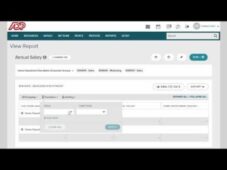The Role and Responsibilities of the Managerial Accountant
Content

Managerial accountants need to analyze various events and operational metrics in order to translate data into useful information that can be leveraged by the company’s management in their decision-making process. They aim to provide detailed information regarding the company’s operations by analyzing each individual line of products, operating activity, facility, etc. As the environment in which accountants work changes, so do the job expectations for managerial accountants. Businesses now have access to more data than ever before, and managerial accountants must be able to properly utilize complex tools and software for data analysis and reporting. Accountants must stay ahead of trends to ensure their companies are equipped for big-picture analysis and strategic planning. If your career goal is to become a managerial accountant, then spend some time getting to know your company’s mission, vision, and purpose.
Managerial accounting is useful for companies to track and craft spending budgets, reduce costs, project sales figures, and manage cash flows, among other tasks. No, managerial accountants are not legally obligated to follow GAAP because the documents they produce are not regulated by GAAP. Product costing deals with determining the total costs involved in the production of a good or service.
Managerial Accounting Examples
Managerial accountants also need leadership and communication skills so that they can present information in a way that management will understand. The best managerial accountants are those who can inform and persuade the decision makers in an organization. Having an expertise in human capital management and financial capital management is a must.
For example, an AR aging report may list all outstanding receivables less than 30 days, 30 to 60 days, 60 to 90 days, and 90+ days.

While both managerial accountants and financial accountants may occasionally make use of the same data, the scope of managerial accounting is much wider. Managers faced with specific decisions may request information on any number of business operations to chart the best possible course of action. You also need a solid foundation of accounting skills so that you have knowledge in basic taxation, financial reporting, compliance, ethics, and tax principles.
Do Managerial Accountants Need to Follow GAAP?
Managerial accountants help determine where bottlenecks occur and calculate the impact of these constraints on revenue, profit, and cash flow. Managers can then use this information to implement changes and improve efficiencies in the production or sales process. Trend analysis is also referred to as horizontal analysis and denotes the process of analyzing a business’s financial statements over a given time period to map out trends and patterns of revenue and cost information.
Using historical data as a reference, the management observes the current information to check the impacts of business decisions. Further, whatever their area of expertise, all managers are responsible for allocating and measuring the performance of their resources. These resources may be financial (e.g., investments), human (e.g., team members), or even technological (e.g., a customer database). Managerial accounting is important for drafting accurate and complete financial statements for internal use and crafting a company’s long-term strategy. Without good managerial accounting, corporate leadership can struggle to make appropriate choices or misunderstand the firm’s true financial picture. Because managerial accounting documents are not official, they do not have to conform to GAAP and can be used internally for a variety of purposes.
Does managerial accounting follow GAAP?
The functions of managerial accounting encompass the sourcing, analyzing, and reporting of financial and non-financial information to be used for internal business decision-making and planning activities. While some accountants have the luxury of operating semi-autonomously, managerial accountants may be responsible for writing reports, giving presentations to stakeholders, and leading a team of junior accounting employees. This highly integrated level of interaction will require you to develop and exhibit outstanding communication and leadership skills. And as opportunities for women as managerial accountants steadily increase, the gender pay gap continues to move toward parity. Managerial accounting is a rearrangement of information on financial statements and depends on it for making decisions. So the management cannot enforce the managerial decisions without referring to a concrete financial accounting system.
The information used to create a forecast can include both financial and non-financial data, giving consideration to contextual influences on a business’s financial performance. Operational budgeting helps businesses set specific financial goals and develop plans to achieve those goals. The payback period can be calculated by dividing the expected cash flow per year by the initial investment. Marginal costing is used to determine the cost of producing an additional unit in order to identify at which volume the production costs per additional unit are the lowest. Marginal costing essentially reveals the relationship between cost, volume, and profit which can be used to determine the break-even point, optimum production volume, and the optimal sales mix.

Costs may be broken down into subcategories, such as variable, fixed, direct, or indirect costs. Cost accounting is used to measure and identify those costs, in addition to assigning overhead to each type of product created by the company. Financial accounting must conform to certain standards, such as generally accepted accounting principles (GAAP). All publicly held companies are required to complete their financial statements in accordance with GAAP as a requisite for maintaining their publicly traded status. Most other companies in the U.S. conform to GAAP in order to meet debt covenants often required by financial institutions offering lines of credit. Forecasting is used to make budget projections based on a comprehensive selection of information, including historical financial and sales data, the economic context and outlook, and customer trends.
Financial Leverage Metrics
Managerial accounting differs from financial accounting because the intended purpose of managerial accounting is to assist users internal to the company in making well-informed business decisions. Managerial accounting, in contrast to financial accounting, is not bound by accounting standards and regulations and is used only to support internal management decisions. Financial accounting, on the other hand, serves to inform the business’s external stakeholders and must comply with accounting regulations, including GAAP. Using constraint analysis to identify bottlenecks in a business’s operations is an example of managerial accounting. For example, a constraint analysis may reveal that the slowing rate of sales in spite of increased demand is due to an insufficient number of trained sales staff available. Business managers can then make the appropriate decisions to eliminate the constraint.
- Variance analysis remains one of most powerful and versatile of all managerial accounting tools.
- Instead, managerial accountants focus on understanding their company’s cash flows, financial transactions, operating costs and internal rate of return.
- That means, in addition to having mathematics and reporting skills, this role will require you to be proficient in audits, compliance, financial planning and analysis, merger and acquisition activity, and strategic cost management.
The data that is gathered, identified, and reported to management can be used for planning, making financial decisions and controlling money. Through a review of outstanding receivables, managerial accountants can indicate to appropriate department managers if certain customers are becoming credit risks. If a customer routinely pays late, management may reconsider doing any future business on credit with that customer. Managerial accounting also involves reviewing the constraints within a production line or sales process.
Includes items such as sales commission, anticipated delivery costs, office supplies, etc. Keeping ahead of trends also involves having a functional understanding of blockchain and cryptocurrency as the world’s financial structure pivots toward a global infrastructure that is increasingly without borders. To be successful, you should be prepared to identify and adapt to advancements in industry best practices and technological innovation.
Managerial Accounting
By now, we know that the information to make managerial decisions is dependent on financial statements. Due to this, the strength or weakness of accounting decisions made depends solely on the quality of basic records. Meanwhile, different managers may interpret the same information in different ways depending on their capacity and experience in the field. Accounting plays a key role, both in day-to-day business operations and with respect to long-term business strategy.
How a Master’s Degree Can Help You Attain Your Career Goals
Capital Budgeting refers to the process of evaluating potential investments and projects, such as real estate, new equipment, or repairs to determine whether they are worth pursuing. Accountants use a variety of calculations to assess the value and return on investment the proposed capital investment offers. Use our Excel inventory turnover calculator to determine what your business’s inventory turnover rate is. Learn how to set up a small business accounting systems with this step-by-step guide. GAAP stands for Generally Accepted Accounting Principles and constitutes a set of accounting standards and rules issued by the Financial Accounting Standards Board (FASB).
Managerial accountants utilize performance reports to note deviations of actual results from budgets. The positive or negative deviations from a budget also referred to as budget-to-actual variances, are analyzed in order to make appropriate changes going forward. If the company is carrying an excessive amount of inventory, there could be efficiency improvements made to reduce storage costs and free up cash flow for other business purposes. Managerial accounting is the practice of identifying, measuring, analyzing, interpreting, and communicating financial information to managers for the pursuit of an organization’s goals. Managerial accountants identify patterns and trends in historical data, investigate data fluctuations and variances, derive actionable insights, and make projections about future trends. Number of units to be produced and sold as well as the required inventory levels at the beginning and end of the budget period.


